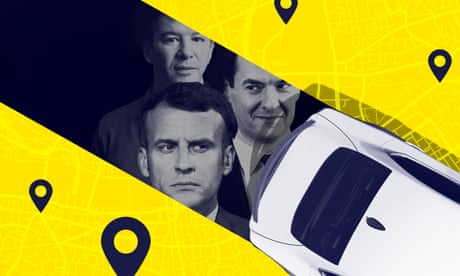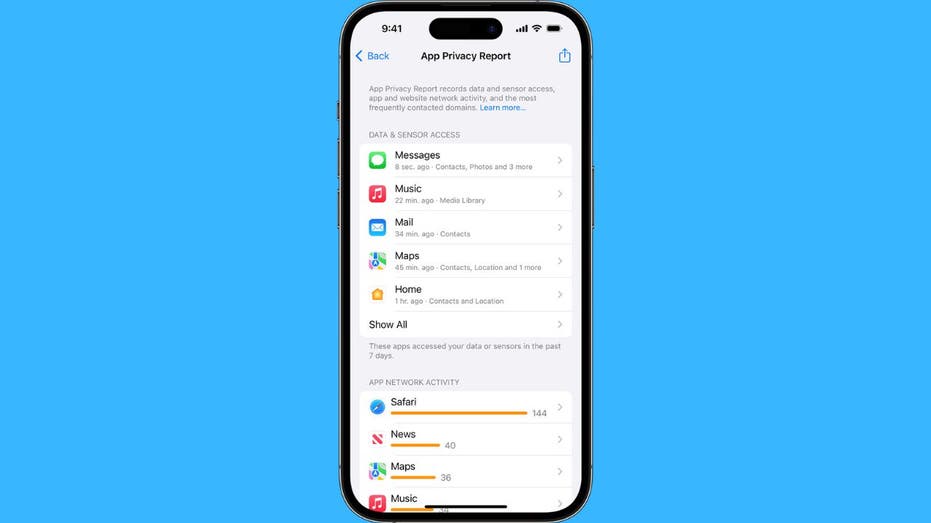- by foxnews
- 11 Mar 2025
Uber broke laws, duped police and secretly lobbied governments, leak reveals
Uber broke laws, duped police and secretly lobbied governments, leak reveals
- by theguardian
- 13 Jul 2022
- in technology

The leak spans a five-year period when Uber was run by its co-founder Travis Kalanick, who tried to force the cab-hailing service into cities around the world, even if that meant breaching laws and taxi regulations.
During the fierce global backlash, the data shows how Uber tried to shore up support by discreetly courting prime ministers, presidents, billionaires, oligarchs and media barons.
The cache of files, which span 2013 to 2017, includes more than 83,000 emails, iMessages and WhatsApp messages, including often frank and unvarnished communications between Kalanick and his top team of executives.
The leak also contains texts between Kalanick and Emmanuel Macron, who secretly helped the company in France when he was economy minister, allowing Uber frequent and direct access to him and his staff.
The Guardian led a global investigation into the leaked Uber files, sharing the data with media organisations around the world via the International Consortium of Investigative Journalists (ICIJ). More than 180 journalists at 40 media outlets including Le Monde, Washington Post and the BBC will in the coming days publish a series of investigative reports about the tech giant.
From Moscow to Johannesburg, bankrolled with unprecedented venture capital funding, Uber heavily subsidised journeys, seducing drivers and passengers on to the app with incentives and pricing models that would not be sustainable.
Uber undercut established taxi and cab markets and put pressure on governments to rewrite laws to help pave the way for an app-based, gig-economy model of work that has since proliferated across the world.
In a bid to quell the fierce backlash against the company and win changes to taxi and labour laws, Uber planned to spend an extraordinary $90m in 2016 on lobbying and public relations, one document suggests.
Its strategy often involved going over the heads of city mayors and transport authorities and straight to the seat of power.
While the Davos sitdown with Osborne was declared, the data reveals that six UK Tory cabinet ministers had meetings with Uber that were not disclosed. It is unclear if the meetings should have been declared, exposing confusion around how UK lobbying rules are applied.
The documents indicate Uber was adept at finding unofficial routes to power, applying influence through friends or intermediaries, or seeking out encounters with politicians at which aides and officials were not present.
When faced with opposition, Uber sought to turn it to its advantage, seizing upon it to fuel the narrative its technology was disrupting antiquated transport systems, and urging governments to reform their laws.
Amid taxi strikes and riots in Paris, Kalanick ordered French executives to retaliate by encouraging Uber drivers to stage a counter-protest with mass civil disobedience.
It was a playbook that, leaked emails suggest, was repeated in Italy, Belgium, Spain, Switzerland and the Netherlands.
When masked men, reported to be angry taxi drivers, turned on Uber drivers with knuckle-dusters and a hammer in Amsterdam in March 2015, Uber staffers sought to turn it to their advantage to win concessions from the Dutch government.
Across the world, police, transport officials and regulatory agencies sought to clamp down on Uber. In some cities, officials downloaded the app and hailed rides so they could crack down on unlicensed taxi journeys, fining Uber drivers and impounding their cars. Uber offices in dozens of countries were repeatedly raided by authorities.
Politicians now also face questions about whether they took direction from Uber executives.
- by foxnews
- descember 09, 2016
High-end vacation resort bans children to achieve 'tranquil environment'
The Alila Marea Beach Resort, located in Encinitas, California, has announced that it's no longer accepting kids and is transitioning to an adults-only vacation spot.
read more





